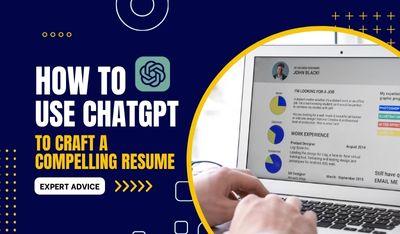How To Deal With An Unexpected Job Loss
By Editorial Team | Updated On December 29, 2023In life, most things don't go the way we want them to. There are ups and downs. There are obstacles, and there are things that we don't foresee. And one such unexpected turn is when we lose our job at a time we never thought we would. Losing a job can be very shocking as well as have a profound impact on individuals, both emotionally and financially.
The term “jobless” scares everyone and is looked down upon. It could be the fear of disruption in income or the loss of one's routine and goals. However, losing a job is a common experience. Most of our friends, relatives, or colleagues have experienced job loss. Yet, many people have successfully navigated through this.
Coping With Emotions When You Are Jobless
It is very important to acknowledge the emotional toll that it takes on an individual who has experienced a job loss. After the initial shock, one is bombarded with a rollercoaster of emotions such as anger, sadness, fear, anxiety, shame, and despair. They would also stay away from social gatherings due to shame and fear of being questioned or interfered with on the job.
It is common to feel this way, and it is important to acknowledge each feeling. Giving yourself time to understand the cause and navigate yourself is the best solution. Remember, these emotions are temporary and provide the pathway to success.
Strategies To Manage Emotions After Job Loss
Allow Yourself To Grieve
It is okay to delve into your emotions after losing a job. It is okay to mourn the loss and the changes it brings. You need to take some time to heal from the pain and detach yourself from the experience. Try journaling to let out the negative emotions.
Take A Break
It is okay to take a break from emotional turmoil. Watch the movies you've been wanting to, go out with friends, and read the novel that you are behind on. Engaging in other activities that you enjoy can be a great way to lift your spirits. Do not worry if they are not very productive or beneficial to your growth. It is fine to cut loose once in a while.
Share Your Feelings
Instead of overthinking and bottling your emotions, talk to your closest friend. Chat with the closest family member or seek professional help. Career counselors could be a guide for you. Sharing feelings can help lessen the burden. It helps you feel relieved afterward.
Self-Care
Engage in activities that bring you joy. Take care of your health. Eat healthy, balanced meals, and exercise. A healthy body is a healthy mind. Avoid getting into damaging habits to cope with stress like smoking, alcohol consumption, etc.
Focus On Personal Growth
Use this time and opportunity for self-reflection and personal growth. Take time for yourself and acquire new skills. Find time to pursue your hobbies and explore new interests. Understand that finding a new job may take some time.
Job Loss Recovery: Steps To Take
Assessing Your Financial Situation And Budgeting Accordingly
Reviewing one's financial situation is very important, as it allows you to assess your current financial position and helps make necessary adjustments with the loss of income. You can make a budget by calculating your expenses and prioritizing your needs.
Thus giving you a clearer vision of your spending and expenses. It helps you identify areas where you can cut back and explore sources of other income and financial assistance. This can help in your future growth as an individual as well.
Setting Up An Emergency Fund After Job Loss
An emergency fund is a safety net during unseen financial hardships, providing you with relief covering personal expenses until you secure a new job. This is done by regularly saving aside a percentage of your income.
Networking
By reaching out for support, assessing your financial situation, updating your resume and skills, networking, connecting with old colleagues, and attending industrial meets, workshops, and training programs, you can navigate through this difficult time and find new opportunities. Remember to be kind to yourself and believe in your abilities and talents.
Exploring Alternative Careers After Job Loss
Freelancing
Losing a job doesn't mean you have lost the ability to work. You can always work as a freelancer, taking work from clients. It allows you to use your expertise and skills on a project basis. This can keep you busy while still having a flexible schedule. Freelancing helps you identify your potential and skills. It also lets you make your own decisions, thus helping you learn a lot.
Starting A Small Business
Post-job loss is the perfect time to start a small business. With the available resources, you can always start a business with your hobbies and passions. A small business is a wonderful opportunity to work on something you love and are passionate about.
Internships
Interning under a good mentor or company is an excellent opportunity that helps improve one's skills as well as adds to the experience. It also attracts employers and recruiters, making you seem like a potential candidate.
Headhunter
A headhunter is a person whose job is to help fill vacancies for companies. They act as an intermediary between job seekers and employers and help speed up the recruitment process. In return, headhunters tend to make a commission if they meet certain criteria.
It tends to have flexible working hours, and headhunters may work at their convenience. They can also leverage their social media platforms to share jobs through them. It may spread, which could end up benefiting someone.
One example of this is the SynkdUp Headhunter Program. This program allows headhunters to earn money on every successful application. A headhunter may earn up to $25 per successful application. It is also a great positive for the community.
Upskilling For Career Growth Post-Job Loss
Attend Training And Development Programs
Consider improving and upgrading your skills. Check out online courses, internships, training and development programs, and webinars, and subscribe to journals and lectures. Increasing and updating your skills is important for the growth of your career. It makes you a prospective candidate among other candidates who applied for the same position.
Enhancing Personal Development And Soft Skills
Employers value individuals with strong interpersonal skills, adaptability, and problem-solving abilities. Personal development helps strengthen these soft skills, hence increasing your employability. You can engage in activities like networking, volunteering, and taking online courses.
These can help you expand your skill set, boost confidence, and open up new opportunities. Investing in your personal growth not only benefits your career but also contributes to your overall development as a person.
Staying Agile Despite Being Jobless
Adapting and adjusting to changes is very important in one's career path. Taking on new roles in new industries, relocating to where opportunities are, and having flexibility can help you in the growth process of your career.
Evaluating Opportunities After Job Loss
Evaluating Skills and Potential
Losing a job is the perfect time to evaluate oneself. List out your strengths and upgrade them by joining workshops or courses that help you develop even more in the area of skills. Identify your areas that need improvement and work on them.
Make Connections
It is very important to have connections and awareness. Attend events, workshops, and industry meets; connect with old colleagues; join professional communities; and socialize. Networking is important to widen professional horizons
Identify Potential Opportunities
Identify current trends in the industrial sector. This can help you evaluate your career path and discover new opportunities. You can also enroll in online courses or attend seminars to help expand your skills. In the age of information, growth opportunities are virtually limitless.
Proven Job-Searching Techniques After Job Loss
Updating Your Resume And LinkedIn Profile
Losing a job is the perfect time to write an effective resume or update it. Use this opportunity to include new skills you've acquired and highlight all you have achieved in the past few years. Your achievements and skills will impress potential employers with your career history. You may also write a cover letter to add to it.
Effective Job Searching
Job search platforms like Synkdup, Jobssherpa, or LinkedIn can help you find potential job opportunities. Keep yourself updated on the job postings by recruiters. Also, pay attention to the type of role you are looking for. You may find job portals that specifically offer those types of jobs.
Practice For Interviews
Job interviews should be taken seriously. Prepare well by understanding the company requirements and researching company culture and position—practice answers for anticipated possible questions the night before.
Conclusion
Navigating through a job loss is not an easy process. It may seem like an endless road, but remember, it is a very common process experienced by many people. Understand that finding a job is not an easy process. It takes time and patience. Enjoy the process and celebrate every small win along the way.
Remember, losing your job does not mean you have any less abilities or worth. Believe in your abilities and skills. It is an opportunity to self-reflect and grow personally. Remember, the road to success is filled with obstacles and challenges. With determination and confidence, you can overcome any obstacles thrown in your way.



